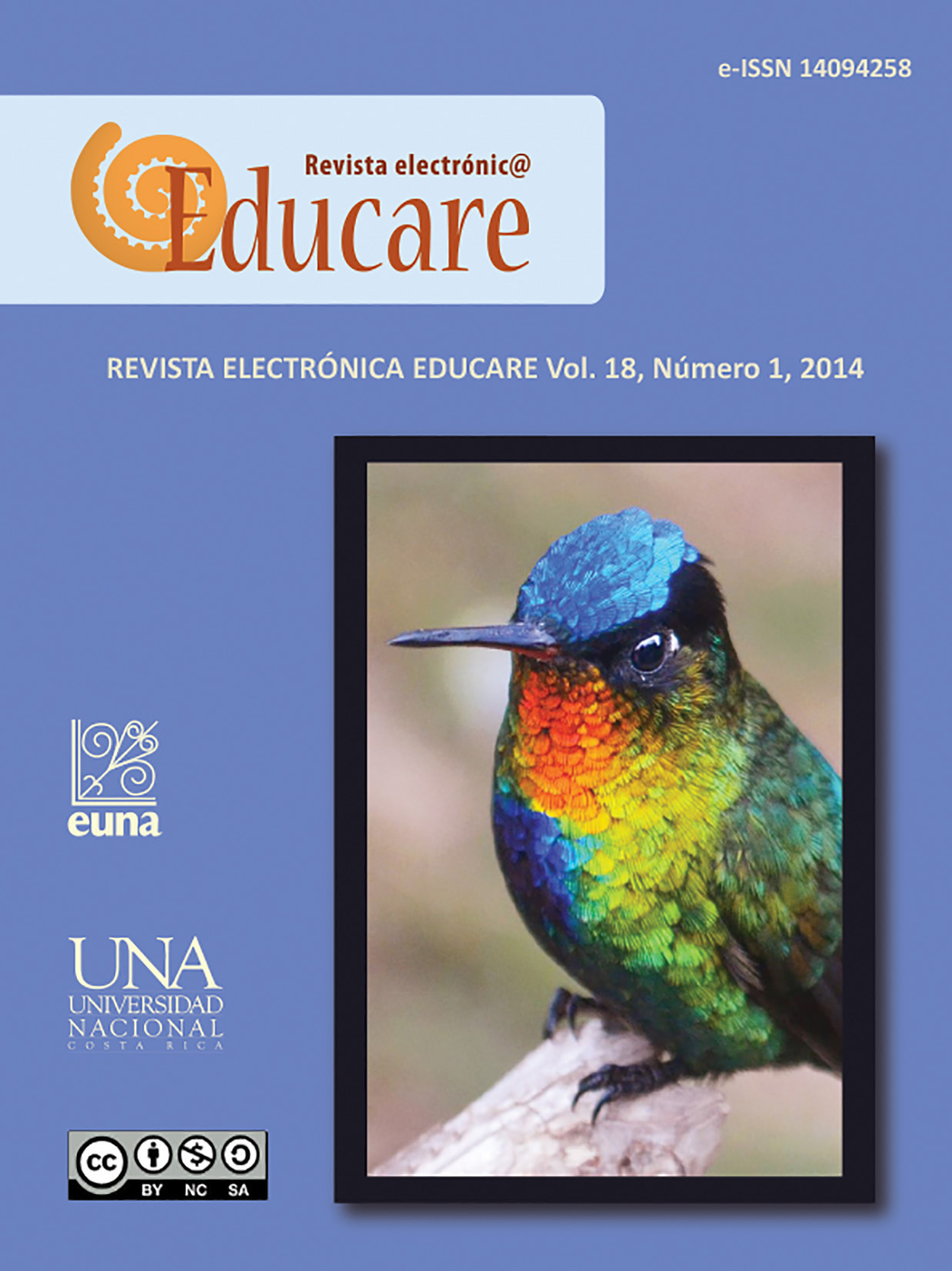Model of Organizational Structure for University Institutes Binding with the Venezuelan Socioeconomic Reality
DOI:
https://doi.org/10.15359/ree.18-1.5Keywords:
Model, organizational structure, socioeconomic reality, university institutes.Abstract
The present study is aimed at proposing a model of organizational structure for university institutes binding with the Venezuelan socioeconomic reality. This is a descriptive non-experimental cross-sectional research study. The study population included 746 professors and administration from the Cabimas and Maracaibo Technological Universities. Data was collected using a questionnaire consisting of 54 items and analyzed using the percentage frequency distribution. Results obtained indicate the sub-systems not integrated in the studied institutions, coexisting bureaucratic structural typologies, and a clear decontextualized implementation of the nation’s plans, which shows low relevance and relationship to the Venezuelan socioeconomic reality. To remedy this situation, a mixed departmental/matrix organizational structure model was designed that integrates the department into a matrix network linking teaching, research, and social action projects. The implementation of this model was proposed in three stages or phases in order to achieve the operational characteristics of the departmental model.
References
Anzaldo, B. (enero-marzo, 1989). Estructura y organización académico-administrativa de las instituciones de educación superior. Revista de la Educación Superior, 18(69), 1-11. Recuperado de http://publicaciones.anuies.mx/revista/69/2/3/es/estructura-y-organizacion-academico-administrativa-de-las
Brull, E. y Gil, M. (2005). Mintzberg: La estructuración de las organizaciones. Cuadernos de Gestión, 3, 1-20. Recuperado de http://www.google.co.cr/search?source=ig&rlz=&q=Mintzberg%3A+La+estructuración+de+las+organizaciones
Cardoso, E. O. (2006). Evaluación de la organización académico-administrativa de tres programas de maestría en el campo de la educación con relación a parámetros del CONACYT (Tesis doctoral). Instituto Politécnico Nacional. Escuela superior de comercio y administración, México.
Castellano, M. E. (noviembre, 2002). Institutos universitarios tecnológicos y colegios universitarios en Venezuela. Trabajo presentado en el 3er encuentro Europa-América Latina sobre formación tecnológica y profesional. La Habana, Cuba. Recuperado de http://www.univ-paris-diderot.fr/comm/infodoc/cdrom1/Conferencias/I%20U%20T%20VENEZUELA.pdf
Daft, R. L. (2000). Teoría y diseño organizacional (6ª ed.). México: Editorial Thomson Internacional.
Díaz, B. (diciembre, 2003). La universidad y el plan de la Nación 2001-2007. Academia, 2(3), 1-6. Recuperado de http://www.saber.ula.ve/bitstream/123456789/16890/1/benito_diaz.pdf
Espinoza, R. (enero-abril, 2009). El discurso ideológico-político en la concepción del desarrollo económico-social en lo regional en Venezuela. Multiciencias 9(1), 13-23. Recuperado http://www.redalyc.org/pdf/904/90411683003.pdf
Pertuz, R. A. (2013). Integración de los subsistemas de la estructura organizacional de los institutos universitarios venezolanos. REICE, 11(1). Recuperado de http://www.rinace.net/reice/numeros/arts/vol11num1/art1_htm.html
Toribio, D. (1999). La evaluación de la estructura académica. Buenos Aires: CONEAU. Recuperado de http://www.coneau.gob.ar/archivos/publicaciones/estudios/toribio.pdf
Universidad del Caribe. (2003). Propuesta para el establecimiento de una organización académica departamental en la Universidad del Caribe. Recuperado de http://www.fesapauv-estatal.org/files/Estudios departamentalizacion.pdf
Downloads
Published
How to Cite
Issue
Section
License
1. In case the submitted paper is accepted for publication, the author(s) FREELY, COSTLESS, EXCLUSIVELY AND FOR AN INDEFINITE TERM transfer copyrights and patrimonial rights to Universidad Nacional (UNA, Costa Rica). For more details check the Originality Statement and Copyright Transfer Agreement
2. REUTILIZATION RIGHTS: UNA authorizes authors to use, for any purpose (among them selfarchiving or autoarchiving) and to publish in the Internet in any electronic site, the paper´'s final version, both approved and published (post print), as long as it is done with a non commercial purpose, does not generate derivates without previous consentment and recognizes both publisher's name and authorship.
3. The submission and possible publication of the paper in the Educare Electronic Journal is ruled by the Journal’s editorial policies, the institutional rules of Universidad Nacional and the laws of the Republic of Costa Rica. Additionally, any possible difference of opinion or future dispute shall be settled in accordance with the mechanisms of Alternative Dispute Resolution and the Costa Rican Jurisdiction.
4. In all cases, it is understood that the opinions issued are those of the authors and do not necessarily reflect the position and opinion of Educare, CIDE or Universidad Nacional, Costa Rica. It is also understood that, in the exercise of academic freedom, the authors have carried out a rogorous scientific-academic process of research, reflection and argumentation thar lays within the thematic scope of interest of the Journal.
5. The papers published by Educare Electronic Journal use a Creative Commons License:














 The articles published by Educare Electronic Journal can be shared with a Creative Commons License:
The articles published by Educare Electronic Journal can be shared with a Creative Commons License: 



